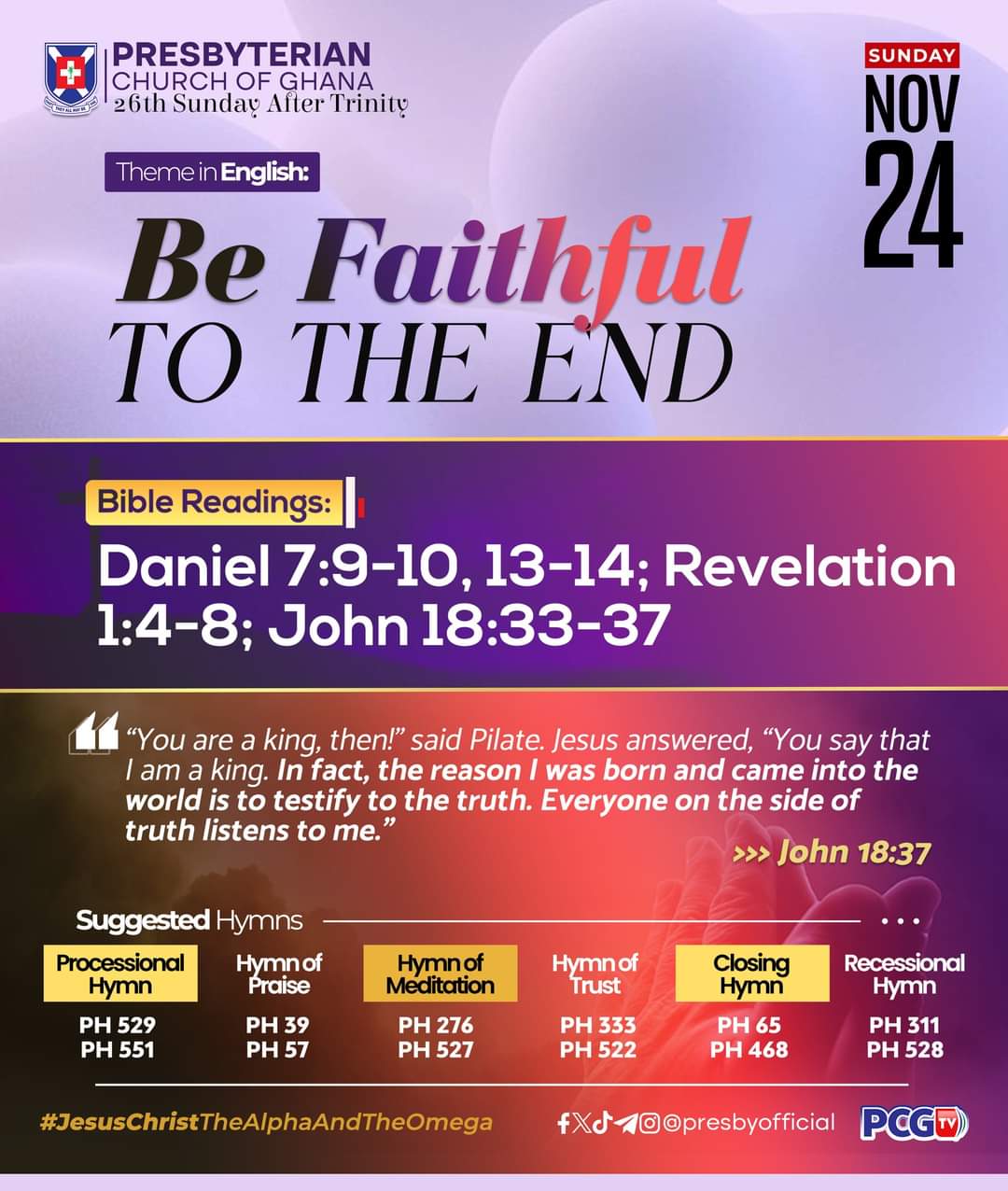
Thursday, 21 November 2024
BE FAITHFUL TO THE END

Saturday, 16 November 2024
READINESS FOR THE LORD'S COMING

Sermonette
on 17 November 2024AD
Presbyterian
Church of Ghana, Living Bread Congregation-Tantra Hill
THEME:
READINESS FOR THE LORD'S COMING
BIBLE
READINGS
Daniel
12:1-3, Hebrews 10:11-25, and Mark 13:1-8
Introduction
The
theme for our reflection is "Readiness for the Lord's Coming." The
Bible consistently emphasizes the reality of Christ's return and the call for
believers to live in anticipation of that great day. The question we are faced
with is this: *Are we ready?* Our Scripture passages today, Daniel 12:1-3,
Hebrews 10:11-25, and Mark 13:1-8, invite us to explore what it means to be
prepared for the Lord’s return, how we should live in light of this truth, and
how these ancient words still speak to us in our 21st-century context.
1.
STANDING FIRM IN TROUBLING TIMES (DANIEL 12:1-3)
Daniel
12:1-3 paints a picture of a time of great distress, one unlike any the world
has seen before. The prophet Daniel speaks of a period of turmoil and
suffering, yet he also provides a word of hope: "At that time Michael, the
great prince who protects your people, will arise." Despite the coming
trials, those whose names are found in the book of life will be delivered. In
this passage, we also see the promise of resurrection some to everlasting life,
others to shame.
This
ancient prophecy has a modern-day relevance. We live in a world where natural
disasters, wars, and political unrest are ever-present realities. In the 21st
century, believers are not exempt from the pressures of a turbulent world. Yet,
the call remains for us to stand firm, knowing that God’s deliverance is
certain. Readiness for the Lord’s coming involves cultivating a life of
perseverance and hope, even in the midst of trials. Our faith should not be
shaken by the turmoil around us but should deepen as we anticipate the
fulfillment of God’s promises.
2.
ENCOURAGING ONE ANOTHER IN FAITH (HEBREWS 10:11-25)
In
Hebrews 10:11-25, the writer emphasizes the finality and sufficiency of
Christ's sacrifice. Unlike the repeated offerings of the Old Testament priests,
Jesus' sacrifice was once and for all. This assurance is meant to embolden us
as we "draw near to God with a sincere heart and with the full assurance
that faith brings" (v. 22). The passage encourages us to hold unswervingly
to the hope we profess because "He who promised is faithful."
One
of the key instructions in this passage is to encourage one another "not
giving up meeting together, as some are in the habit of doing, but encouraging
one another and all the more as you see the Day approaching" (v. 25). In a
21st-century context, with the rise of individualism and the challenges brought
by technology, we might be tempted to isolate ourselves or treat faith as a
private affair. However, readiness for the Lord’s coming involves intentional
community and mutual encouragement. We need each other to stay strong in faith,
to remind one another of the hope we have in Christ, and to live out our faith
through acts of love and service.

3.
DISCERNING THE SIGNS OF THE TIMES (MARK 13:1-8)
In
Mark 13:1-8, Jesus speaks of the signs of the end times wars, rumors of wars,
earthquakes, and famines. He warns the disciples not to be alarmed or misled by
these events, for they are only the beginning of birth pains. The key takeaway
from this passage is vigilance and discernment. Jesus calls His followers to be
alert, to understand the times, and to remain steadfast.
In
today’s world, we are constantly bombarded with information, predictions, and
theories about the end times. News cycles, social media, and sensational
reports can easily create anxiety and confusion. But readiness for the Lord’s
coming calls for a different response. Instead of being overwhelmed or fearful,
we are called to stay rooted in God’s Word, discerning the truth amidst the
noise. Jesus’ instructions are clear: do not be deceived, and do not be afraid.
This kind of spiritual vigilance is crucial for the 21st-century believer who
faces many distractions and competing narratives.
APPLICATION
HOW
TO BE READY FOR THE LORD’S COMING TODAY
1. STAY
GROUNDED IN SCRIPTURE AND PRAYER: In a world filled with uncertainty, our
anchor is God’s unchanging Word. Spend time daily in Scripture and in prayer,
seeking to understand God's will and preparing your heart for His return. This
spiritual discipline is the foundation of readiness.
2. LIVE
A LIFE OF HOLINESS AND INTEGRITY: Readiness for the Lord's coming means living
a life that honors Him. Our choices, actions, and words should reflect the
character of Christ. We are called to be "the light of the world" in
our workplaces, schools, and communities.
3. ENGAGE
IN COMMUNITY: Encourage and be encouraged by fellow believers. Do not neglect
gathering together for worship, Bible study, and fellowship. The Church is the
body of Christ, and we grow stronger in faith when we support each other. In
the 21st century, this might also mean making the most of technology to stay
connected and uplift one another in times when physical gatherings are not
possible.
4. SHARE
THE GOSPEL BOLDLY: The reality of Christ’s return should inspire us to share
the hope of the Gospel with urgency. In a society where many are searching for
answers in all the wrong places, let us point them to the One who holds the
future. Whether through personal conversations, social media, or involvement in
community outreach, be a witness to the hope found in Jesus.
5. DEVELOP
A DISCERNING HEART: Equip yourself to discern the times. Not every event or
crisis is an indication of the end, but every moment is an opportunity to grow
closer to God. Let your discernment be guided by Scripture, not sensationalism.
Keep your eyes on Jesus and be vigilant in prayer, always asking for wisdom and
understanding.
6. CULTIVATE
A SPIRIT OF READINESS AND EXPECTANCY: Live each day as if the Lord’s return
could be today. This doesn’t mean neglecting your daily responsibilities, but
it does mean living with purpose, urgency, and anticipation. Allow the hope of
Christ’s return to shape your decisions and priorities.

CONCLUSION
Readiness
for the Lord’s coming is not just about waiting; it’s about living actively and
purposefully. Daniel’s prophecy of perseverance, the exhortation to communal
faithfulness in Hebrews, and Jesus’ call to vigilance in Mark all remind us
that readiness involves a steadfast faith, a hopeful community, and a
discerning spirit. In the 21st century, let us be people who embody these
truths, standing firm amidst challenges, encouraging one another, and remaining
alert to the signs of God’s work around us. May we live each day with the
expectation of His return, fully prepared and fully surrendered to His will.
Amen.
Let's Pray
APOSTLE
CREED
||GA WEST HERALD|| Your well sought newspaper is out. Download to be informed, educated, and entertained to God's glory. || *GA WEST HERALD ALWAYS ACCURATE* ||
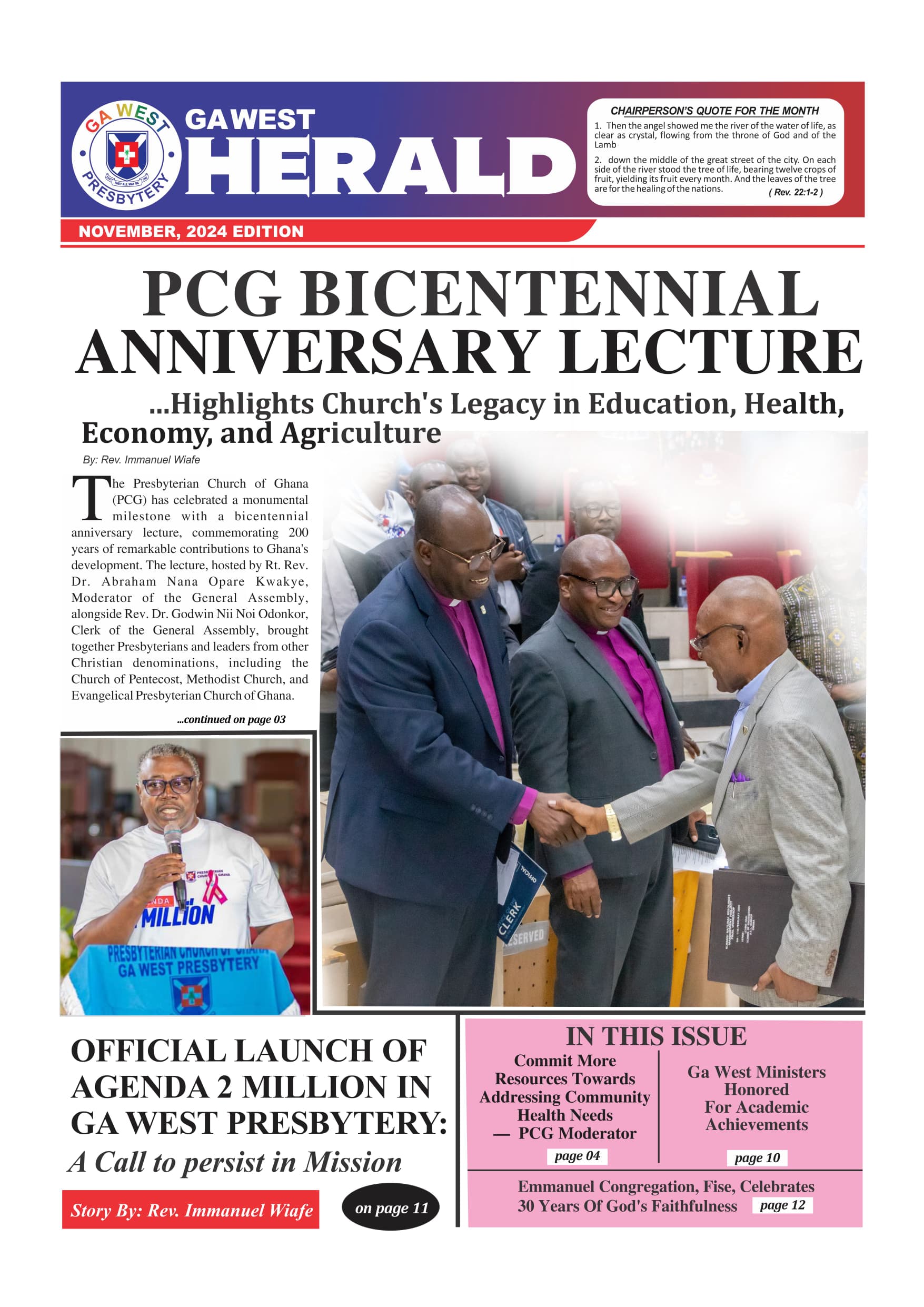
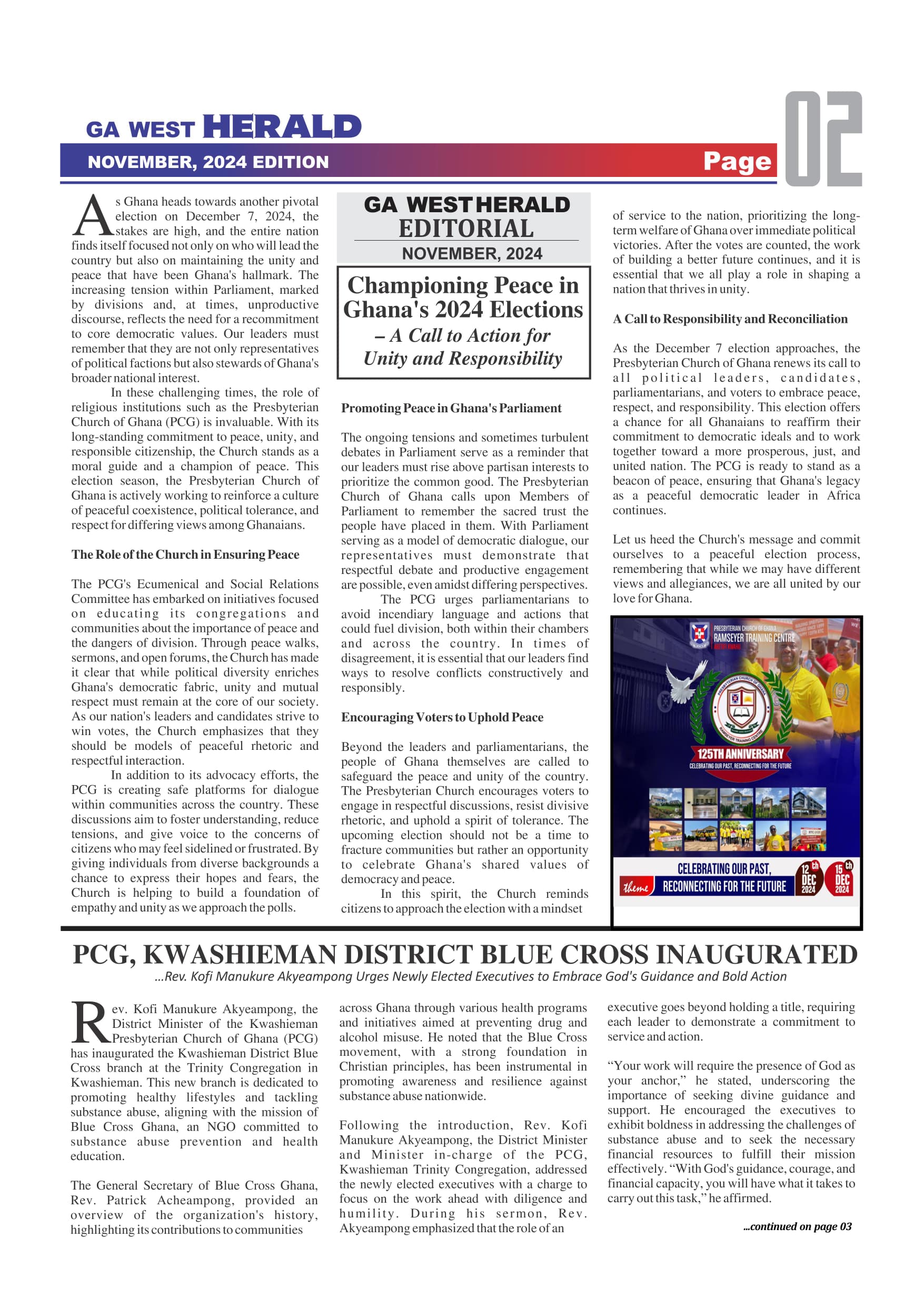
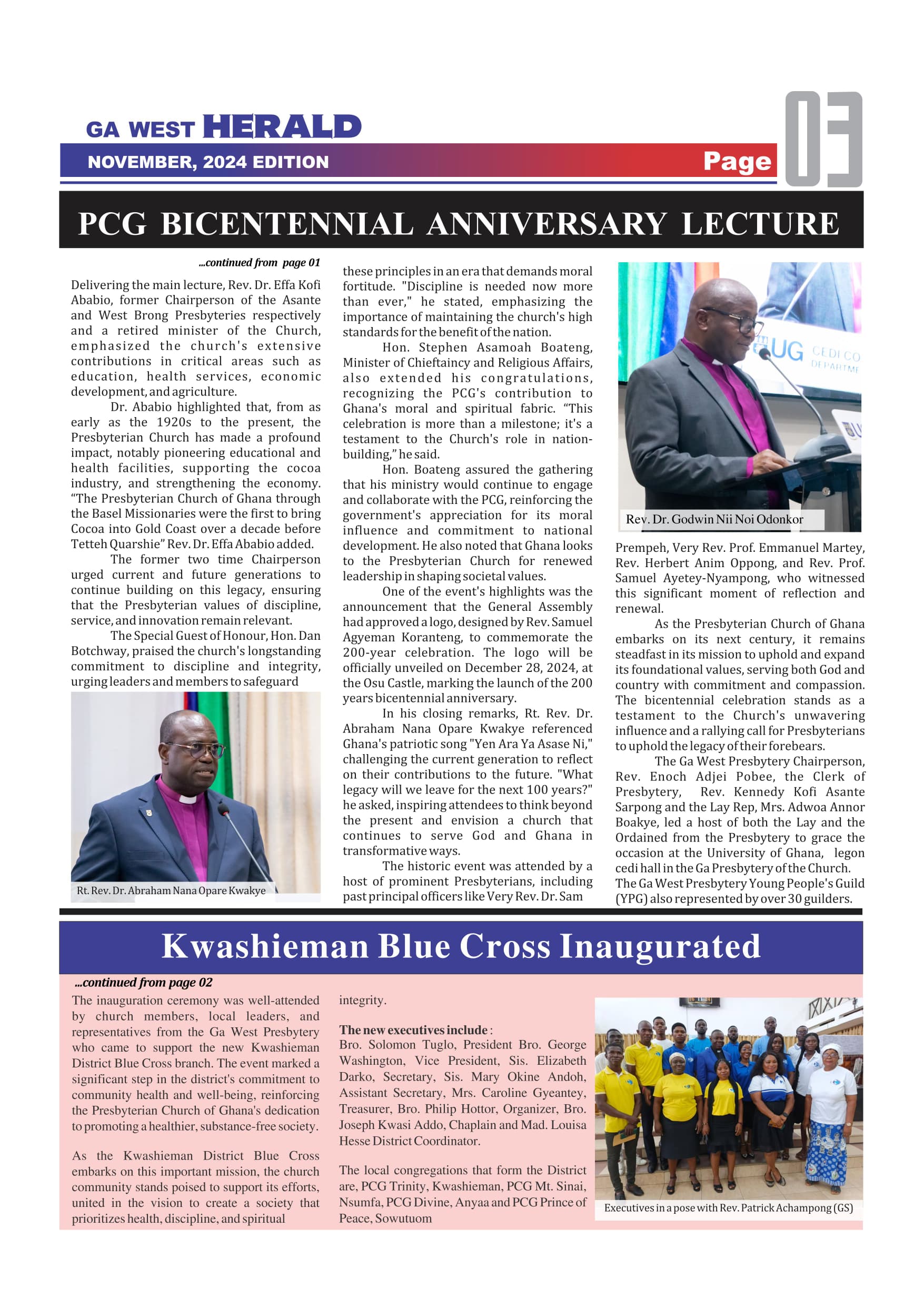
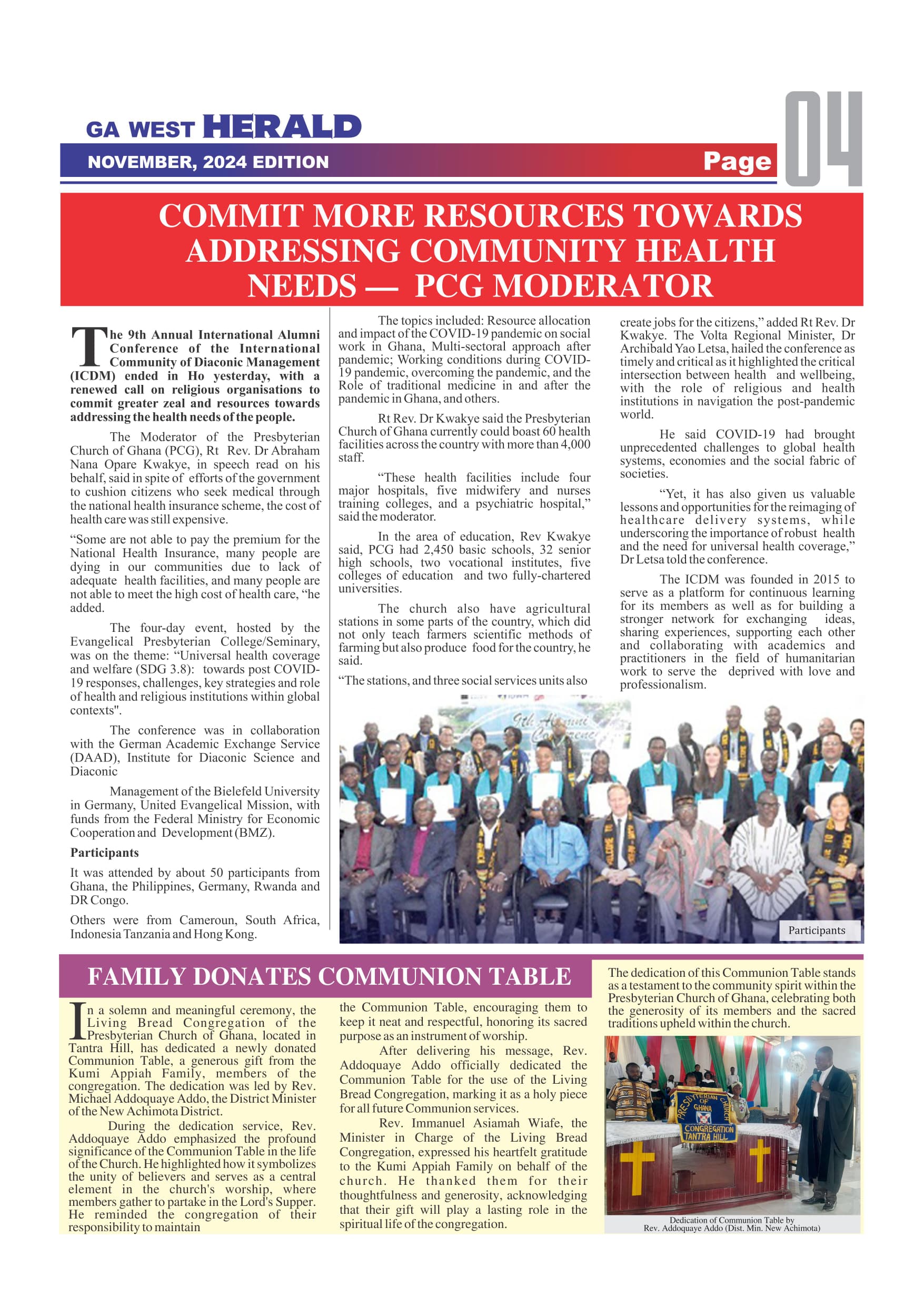
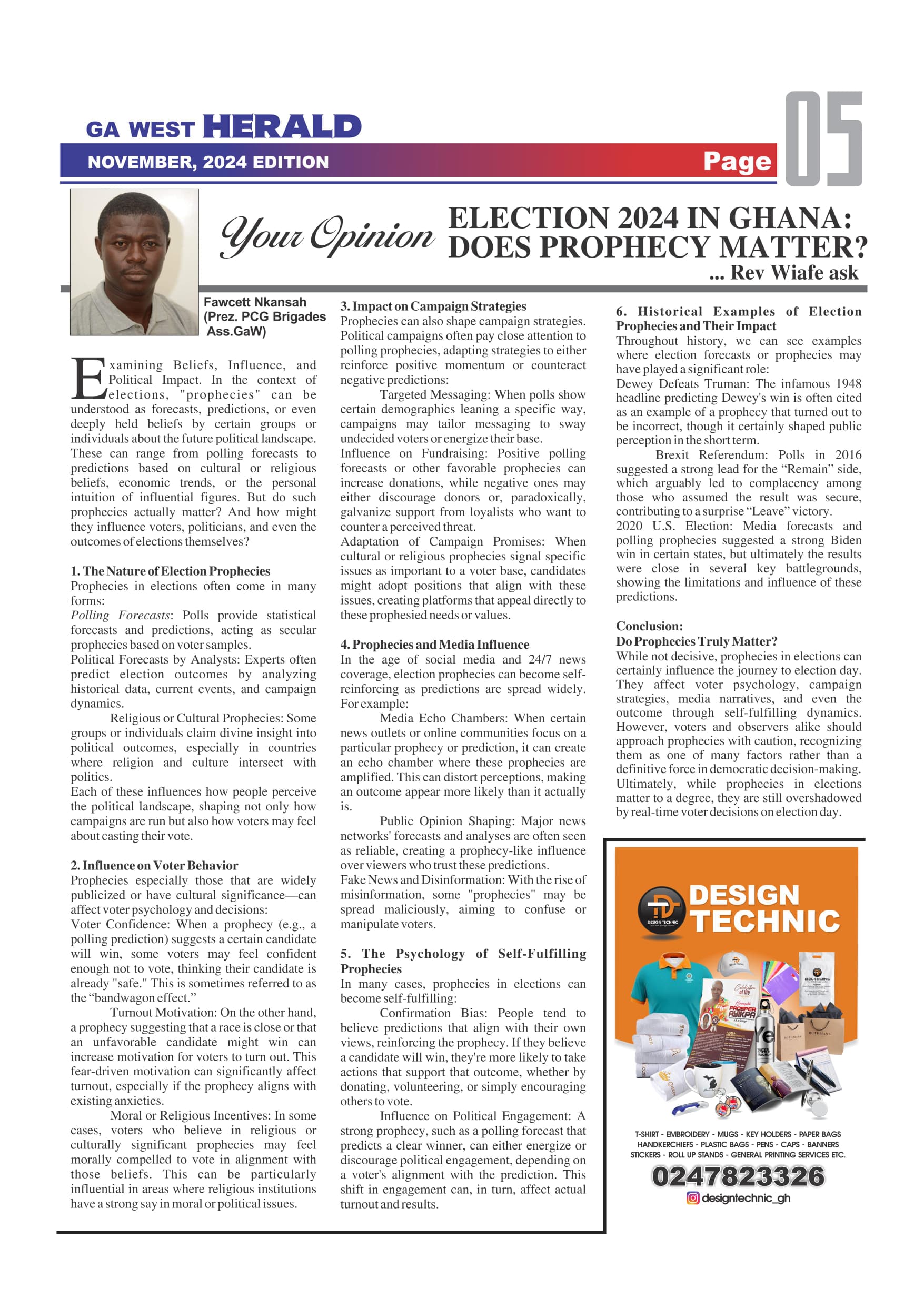
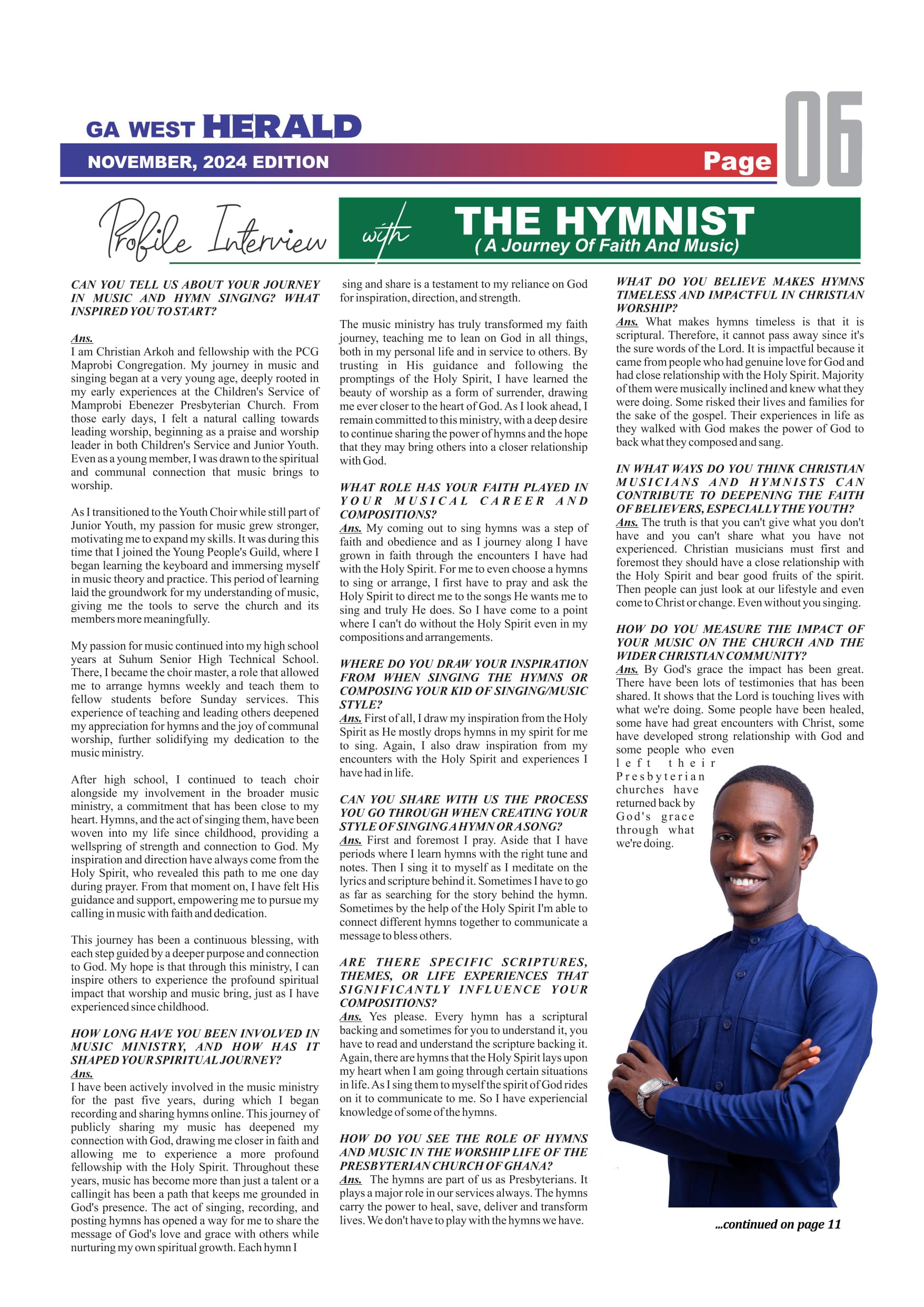
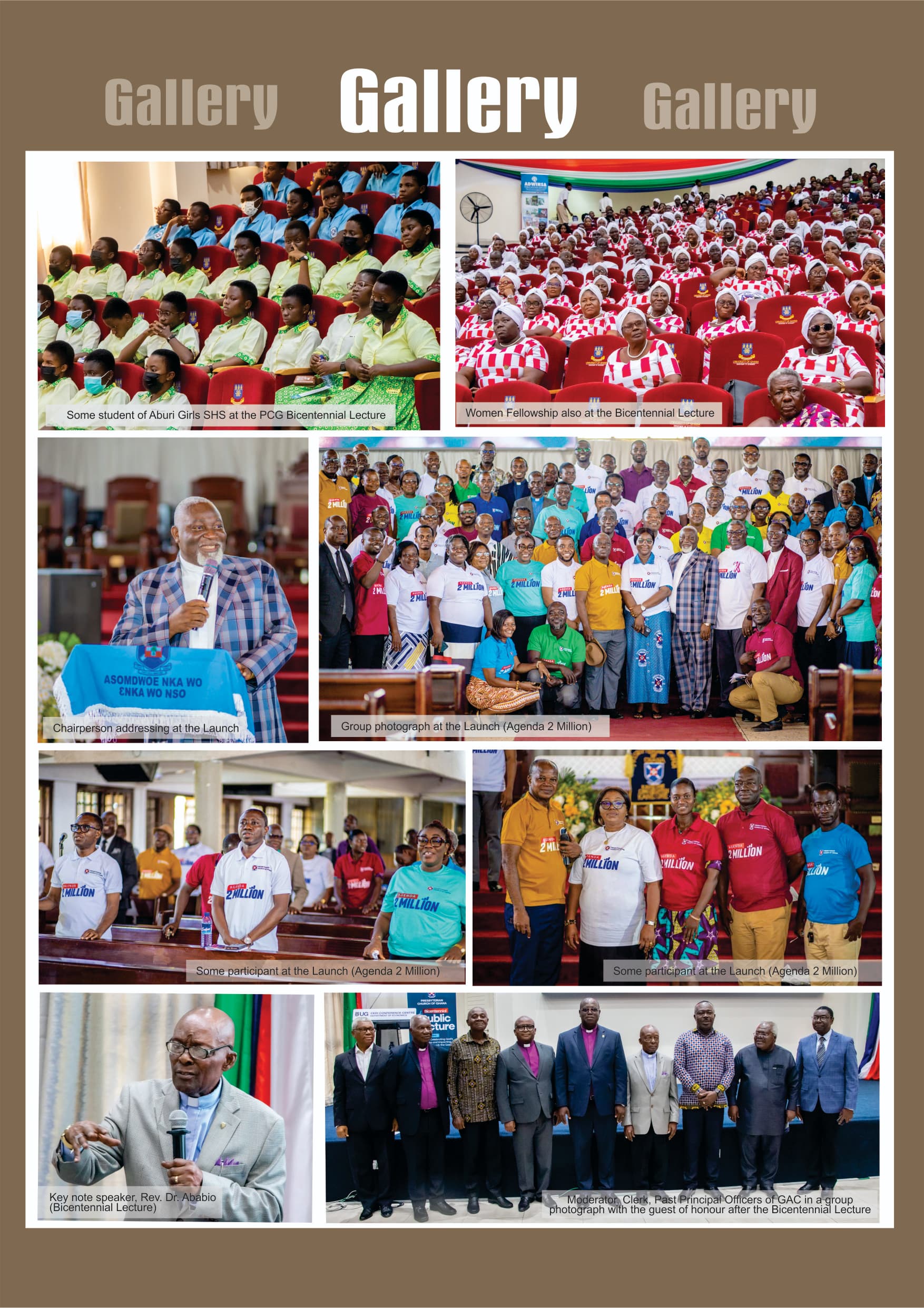
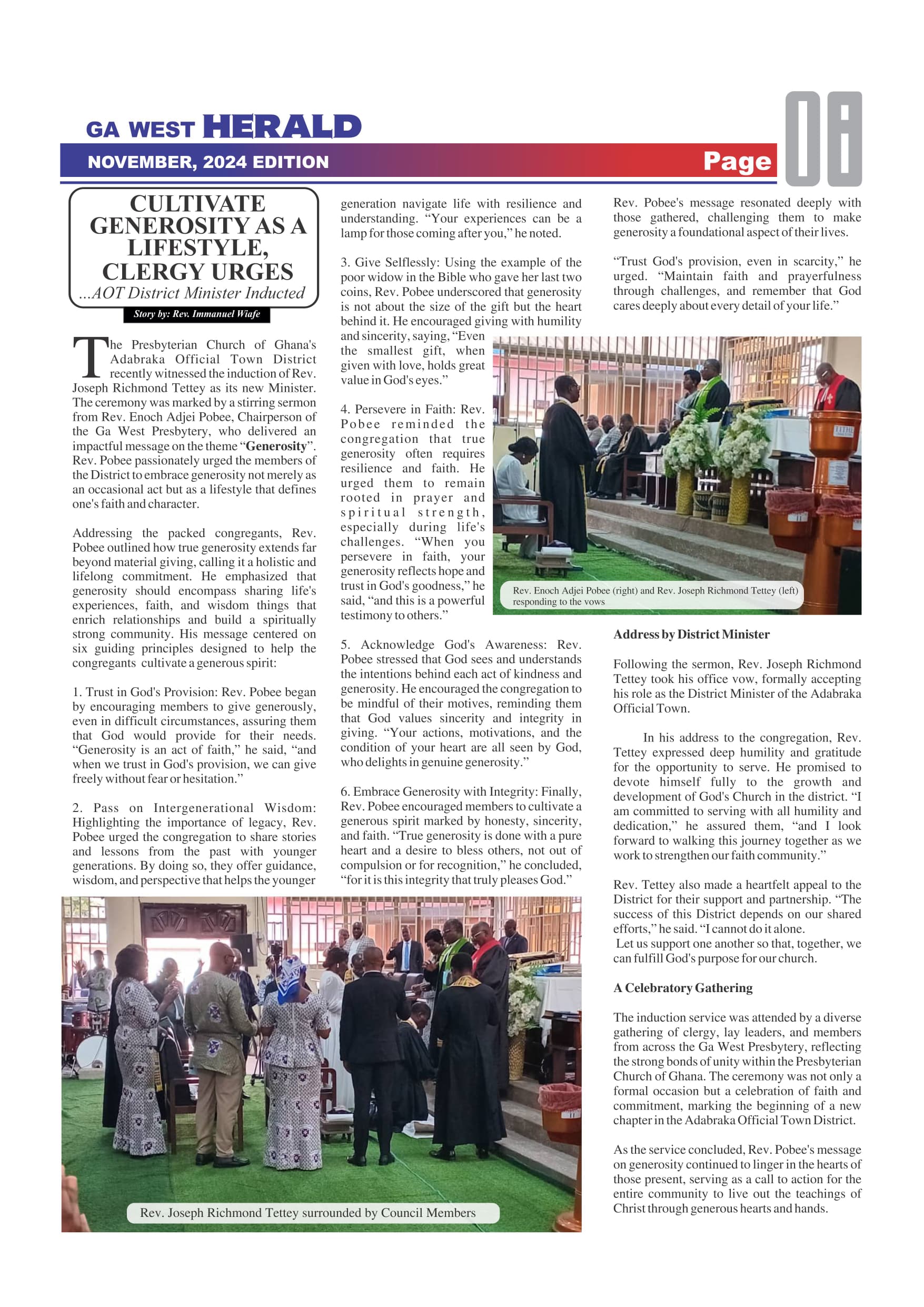
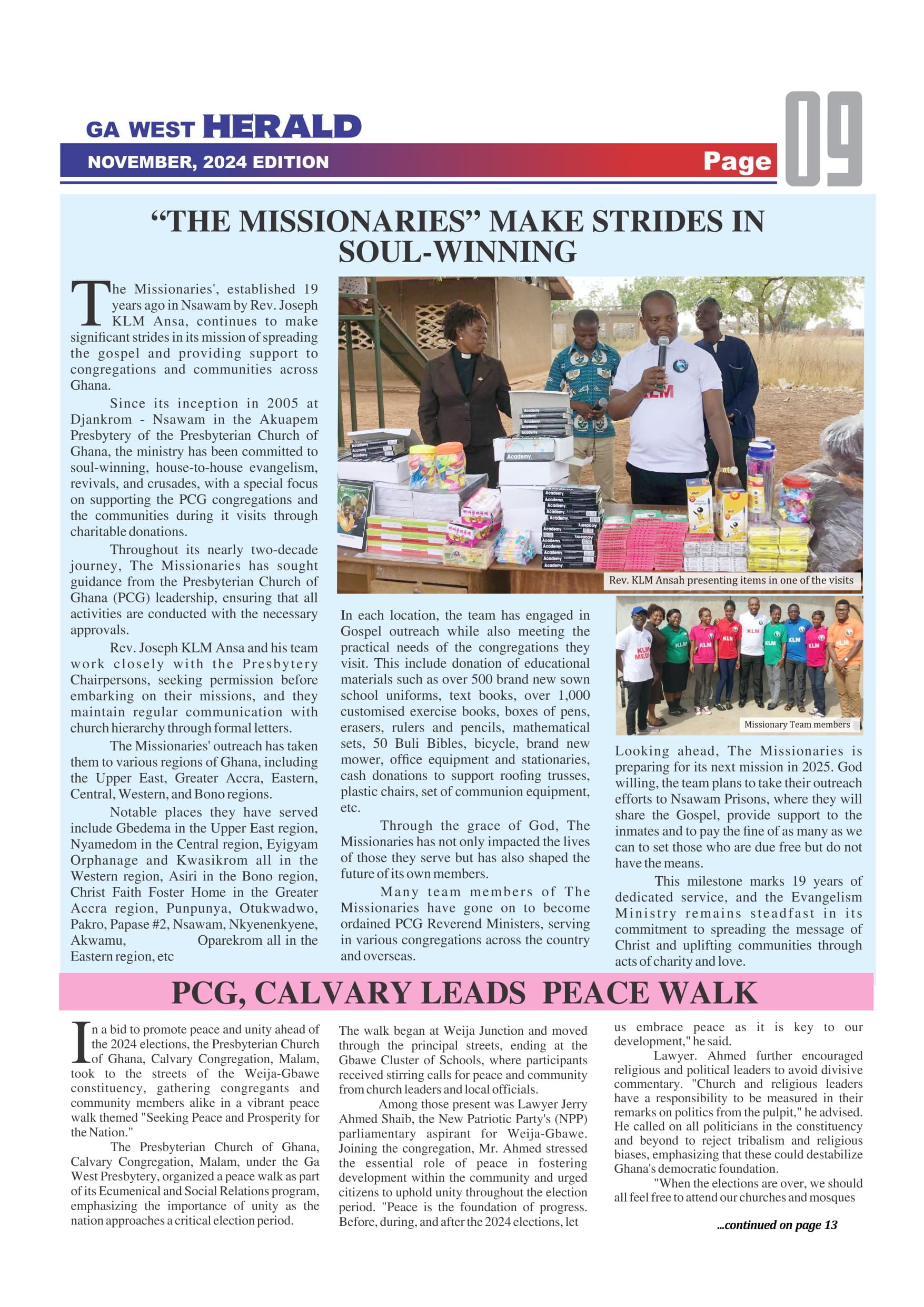
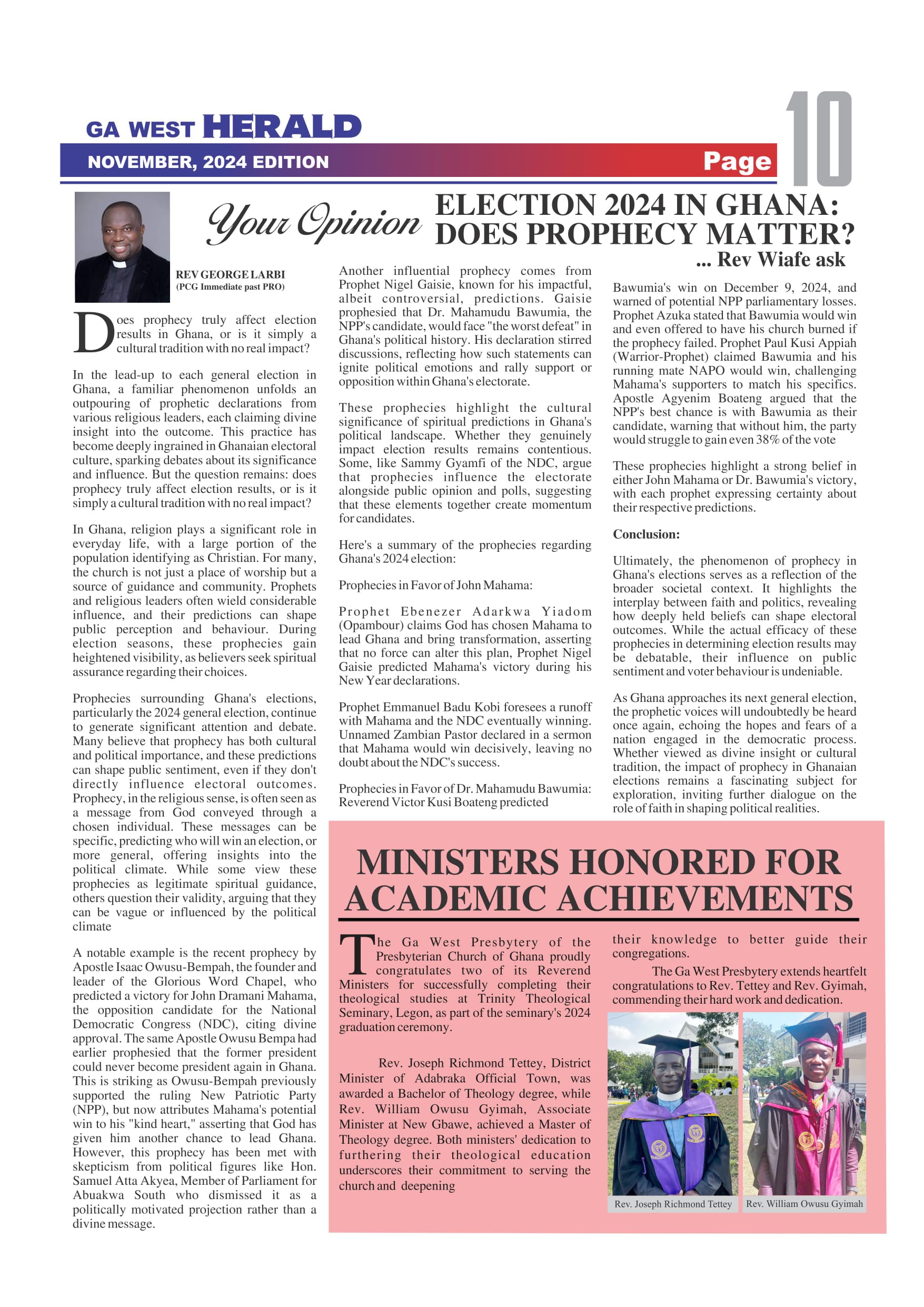
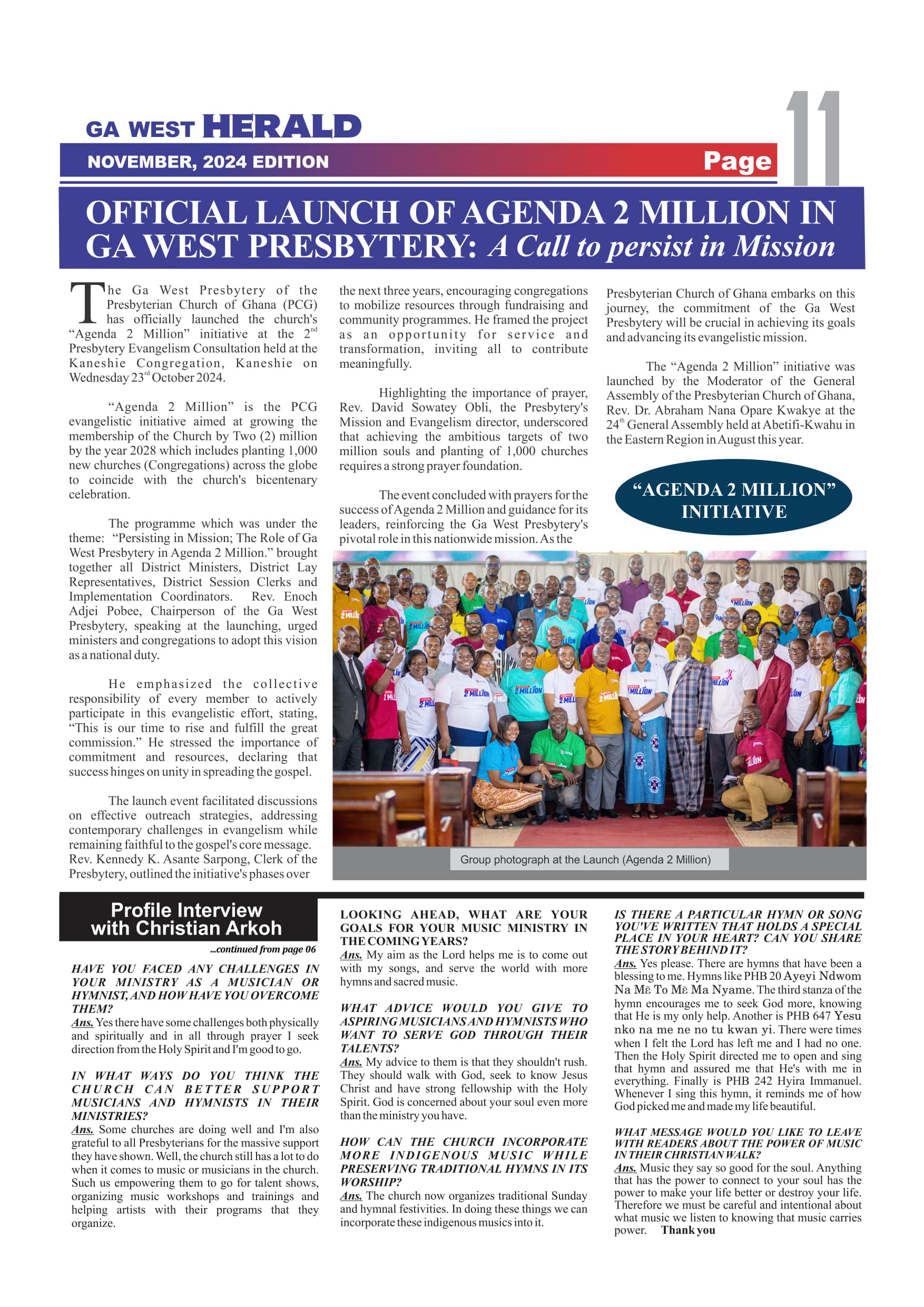
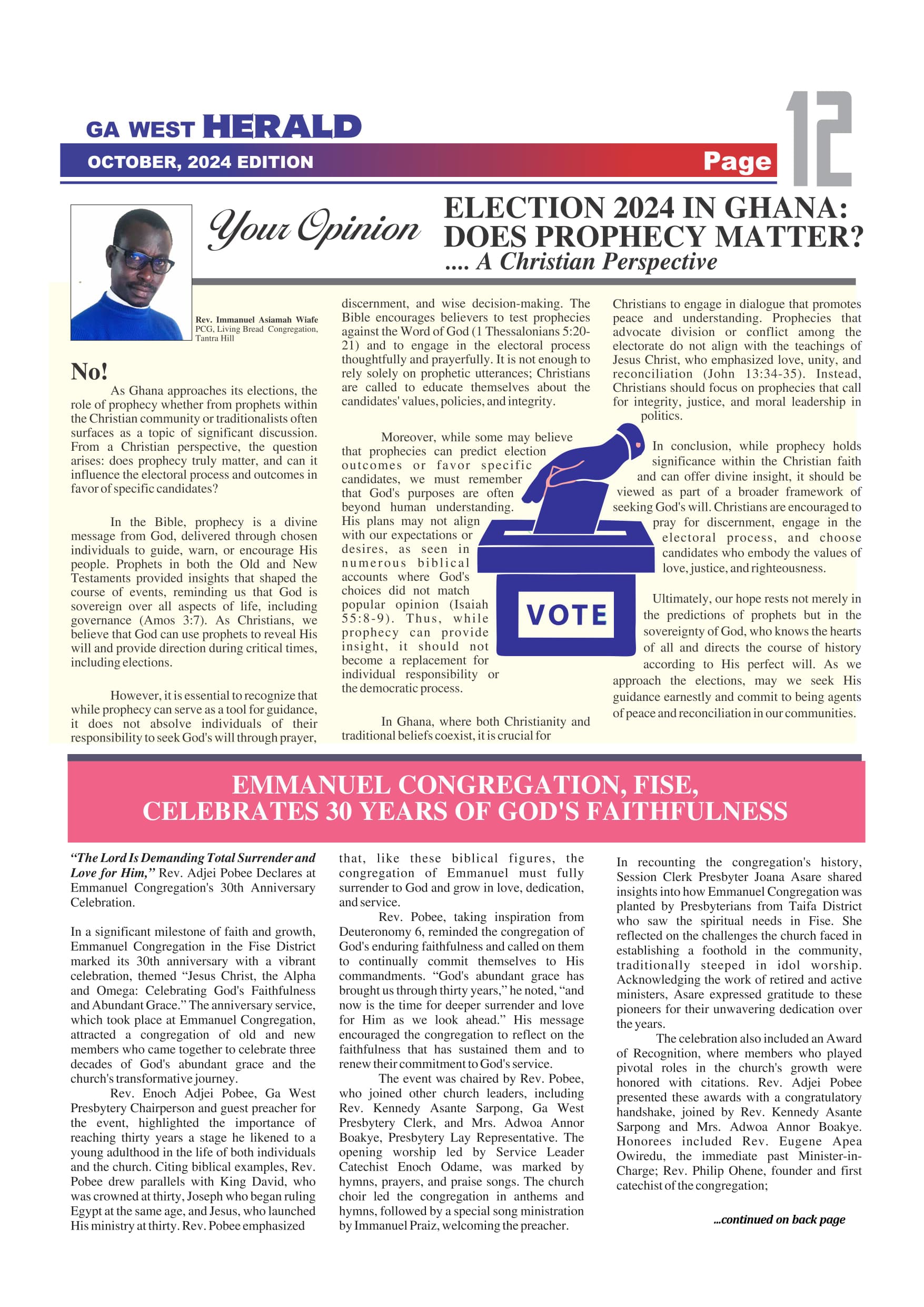
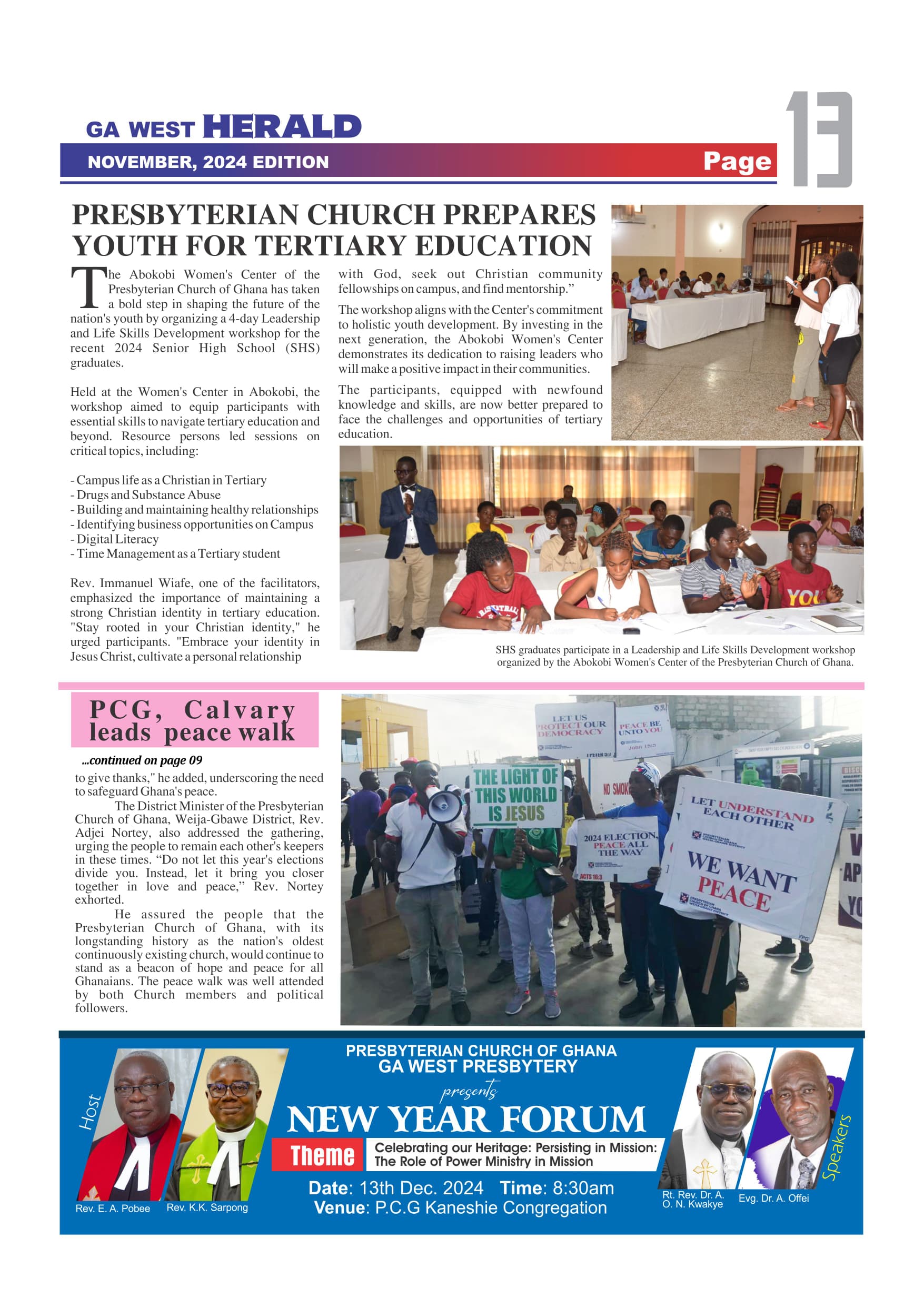
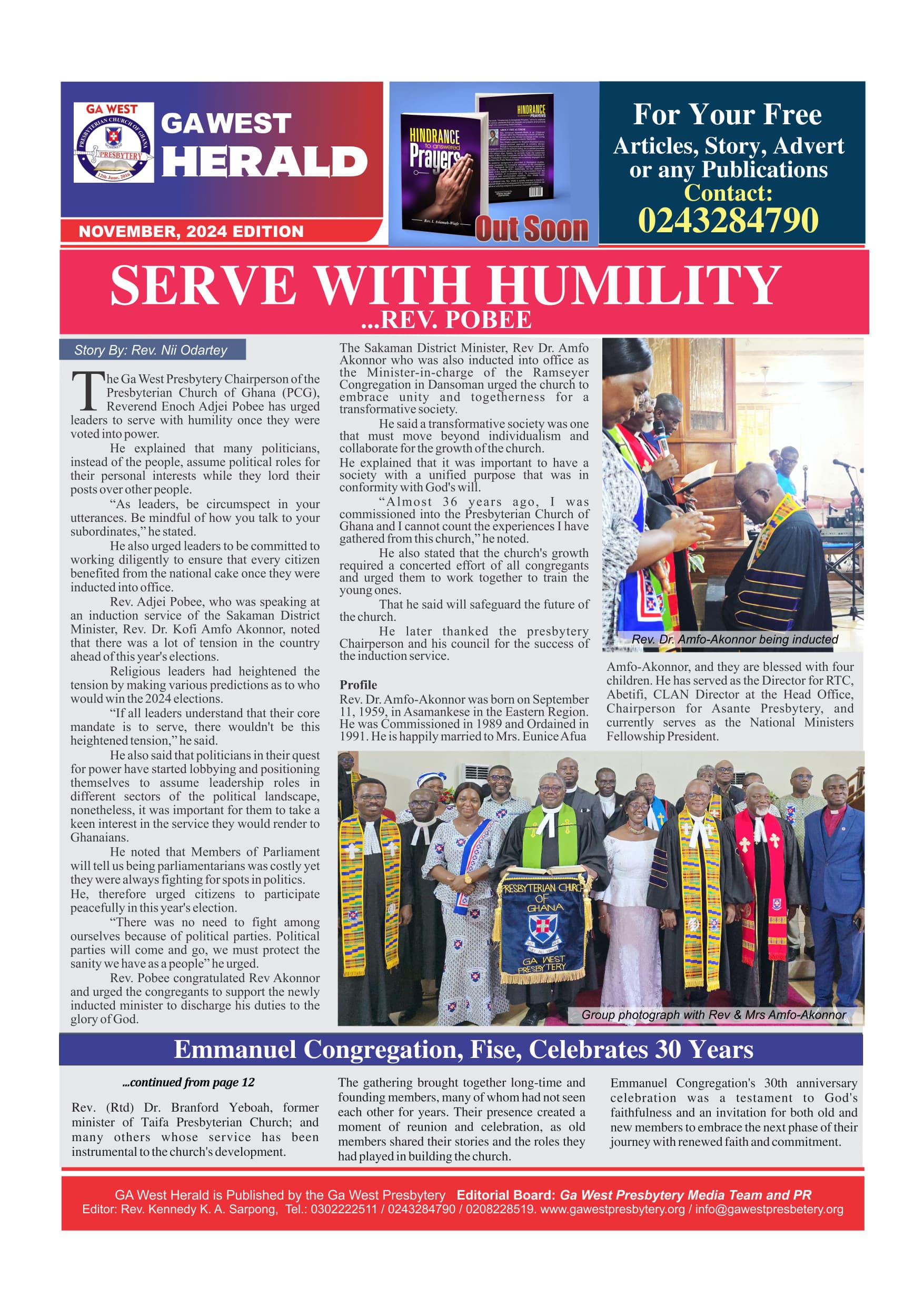
Saturday, 9 November 2024
GENEROSITY
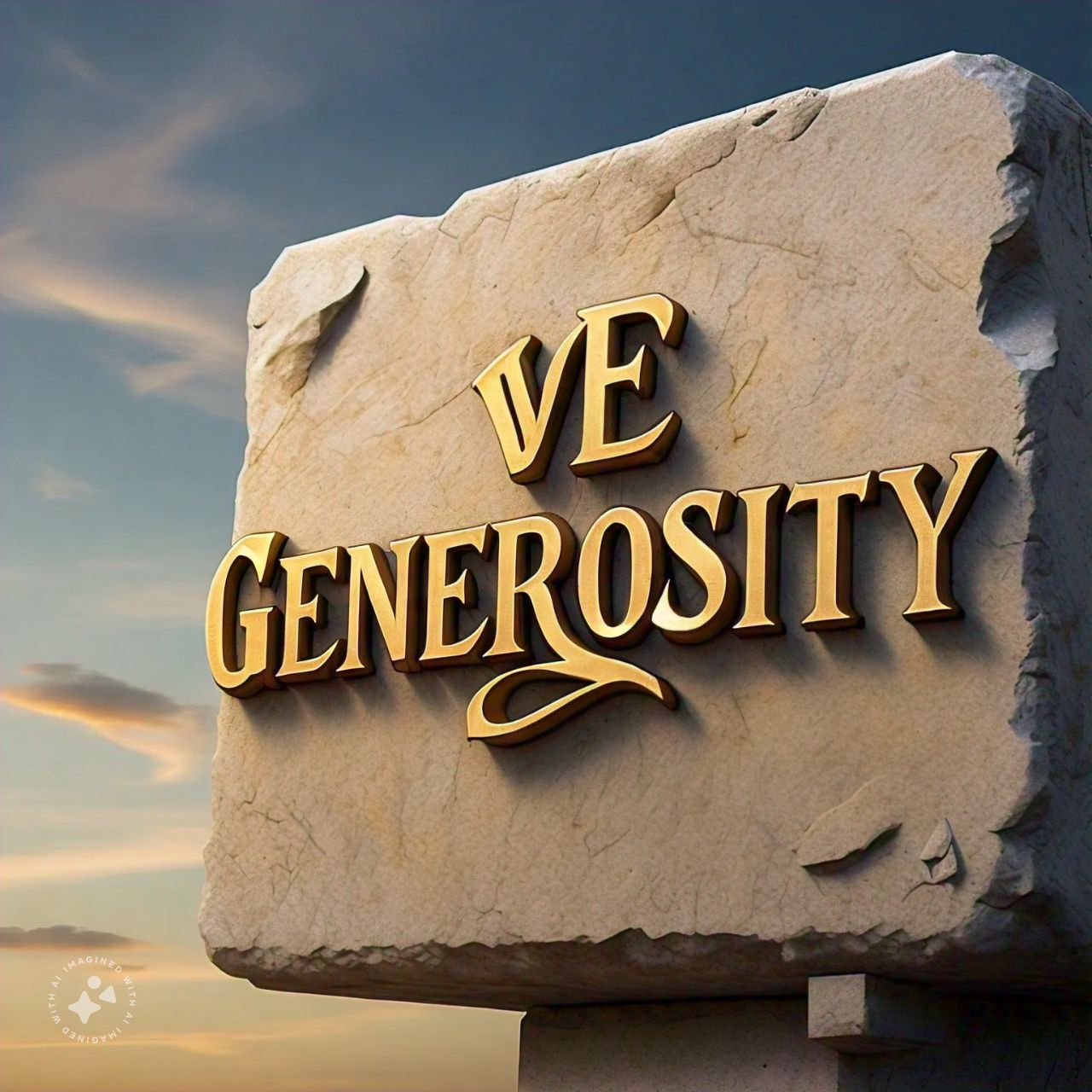

Saturday, 2 November 2024
LOVE GOD AND YOUR NEIGHBOR: BUILDING TOGETHER FOR A STRONGER FUTURE


